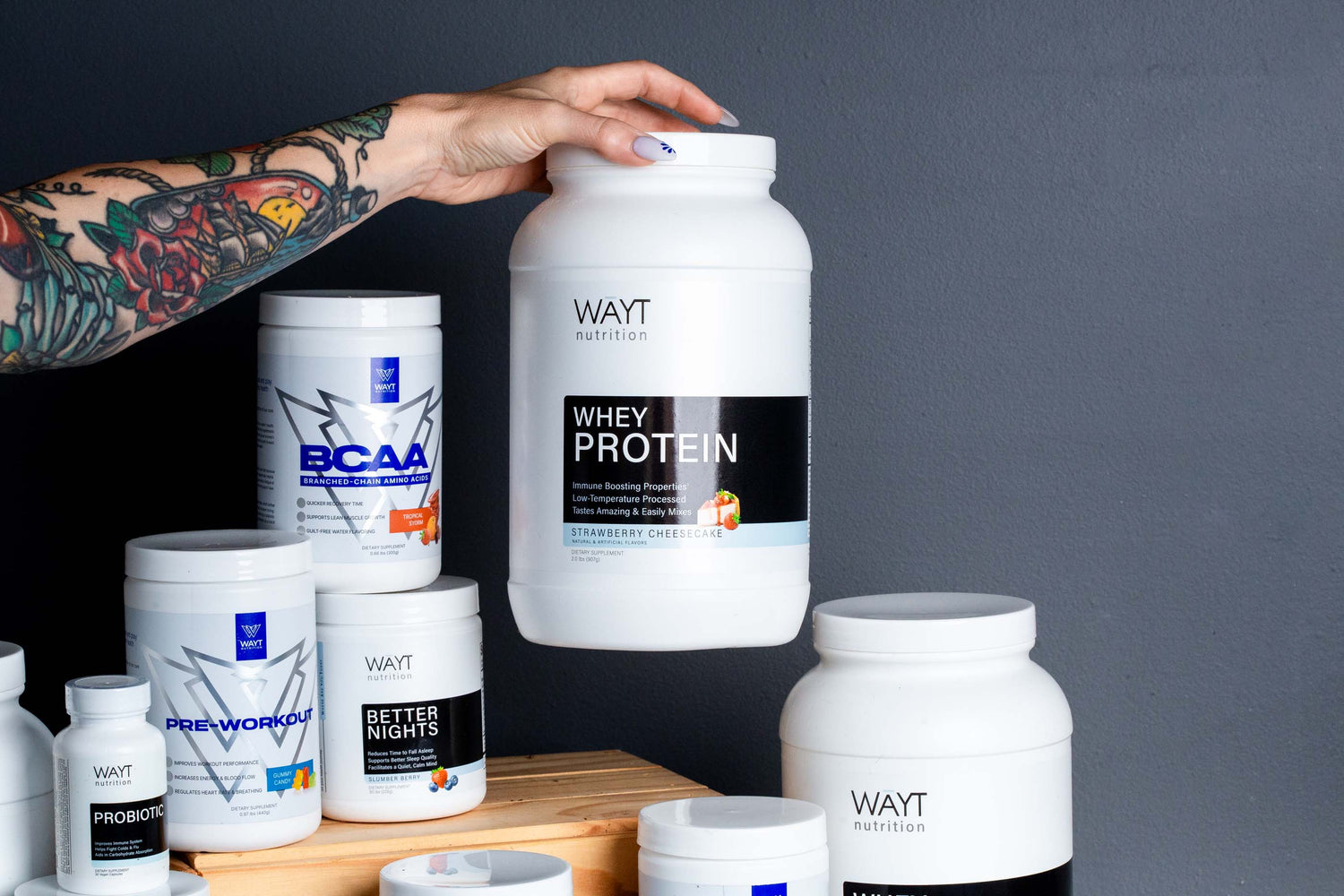Struggling to sleep leads to insomnia, weight gain, unproductive mornings, and a struggle at the gym. The good news is there are ways to get better sleep and improve your overall rest with science-backed strategies. Get to know the science of sleep, your cycles, and how to improve your chances of getting a good night's rest.
Know Your Sleep Cycles
 You're probably aware of sleep cycles ranging from light to deep, but there are actually five that help with different areas. Some phases are essential for regenerating tissues after a workout, and others are responsible for helping us store memories and learn. Here's a breakdown of what to expect when you sleep.
You're probably aware of sleep cycles ranging from light to deep, but there are actually five that help with different areas. Some phases are essential for regenerating tissues after a workout, and others are responsible for helping us store memories and learn. Here's a breakdown of what to expect when you sleep.
Phase 1 - When drifting off, you enter the first phase of sleep, and you'll spend the next five minutes in a light sleep as your brain produces theta and alpha waves.
Phase 2 - You're still sleeping lightly in phase two, and it is a good time to come out of a nap to avoid feeling like you've slept too hard or long.
Phase 3 introduces deeper sleep and delta waves when your muscle activity and eye movements stop.
Phase 4 - You're now in a deeper state of sleep where your body works on renewing your tissues and muscles and strengthening your immune system.
Phase 5 - You're now in the final Rapid Eye Movement (REM) phase, which usually starts an hour and a half into sleep and can last an hour. Phase five is also an opportunity to help your brain store long-term memory and help with learning processes.
Sleep cycles also give invaluable clues as to why you may still feel sore or not well-rested. For example, you're only sleeping a few hours a night and not getting enough rest to dig into those more regenerative sleep phases.
Choose the Right Supplements for Sleep
 Supplements can help ease your restlessness and help you sleep better and longer than before. Here's a breakdown of what to try and what the science says about their impact on sleep.
Supplements can help ease your restlessness and help you sleep better and longer than before. Here's a breakdown of what to try and what the science says about their impact on sleep.
Better Nights
Better Nights is a unique sleep aid that helps you wind down and quiet your mind from the noise of the day to reduce the time it takes to fall asleep. It blends scientifically-proven ingredients to help you sleep, including magnesium and melatonin, Zinc, L-Glycine, GABA, L-Tryptophan, L-Theanine, and 5-HTP. Just mix a scoop with 8 ounces of water and drink about 30 minutes before bedtime to aim for at least 8 hours of sleep for the night.
Collagen
You may have heard of Collagen as a way to bolster your hair, nails, and joints and improve the quality of your skin o reduce wrinkles and smooth cellulite. But it can also help you unwind due to the amino acid glycine. This inhibitory neurotransmitter is known to help soothe the central nervous system and promote better relaxation.
Probiotics
Probiotics don't necessarily improve your sleep but are still beneficial to a good night's rest. They contain beneficial bacteria that help synthesize serotonin and melatonin, which play a role in our sleeping and wake cycles. Beyond how they impact sleep, they can improve your gut health and overall digestion, aiding in a better night's rest.
Eat For Better Sleep
 Although it's essential not to overeat and reach for alcohol and sugary treats before bedtime, some foods can help you sleep.
Although it's essential not to overeat and reach for alcohol and sugary treats before bedtime, some foods can help you sleep.
Complex Carbs
Simple carbs like bread and cookies aren't going to do much for your health or your ability to get a good night's rest. Instead, reach for whole-grain bread, brown rice, and other complex carbs that help stabilize or increase serotonin levels.
Magnesium-Rich Foods
Magnesium has long been associated with better sleep quality and is easy to incorporate into your diet. Choose leafy green vegetables, nuts, seeds, and avocados for dinner or a late-evening snack.
Lean Protein
Lean proteins are more than chicken, turkey, and fish. They can also include low-fat cheese to help stimulate sleep-enhancing serotonin with the help of tryptophan.
Soothing Teas
Caffeeine-fueld ddrinks are off limits when you want to sleep more, but herbal beverages are in. Try chamomile or peppermint tea to soothe your stomach and warm you up from head to bed.
Sometimes finding the right food is about experimenting to see what fits your needs or considering what you consumed earlier in the day. For example, you may find even the most popular sleep-enhancing foods are too much for your stomach an hour before bedtime and need more time to digest. Or you may realize caffeine after lunchtime interferes with your evening sleep cycle.
Collagen
You may have heard of Collagen as a way to bolster your hair, nails, and joints and improve the quality of your skin to reduce wrinkles and smooth cellulite. But it can also help impact sleep quality due to the amino acid glycine. This inhibitory neurotransmitter helps soothe and calm your nervous system, ultimately enabling you to unwind and relax.
Next Steps
Ready to enhance your health and weight loss with the help of probiotics, supplements, and a proven exercise plan? Start shopping our supplements or comprehensive health programs to pick up organic greens, multivitamins, probiotics, and more.

